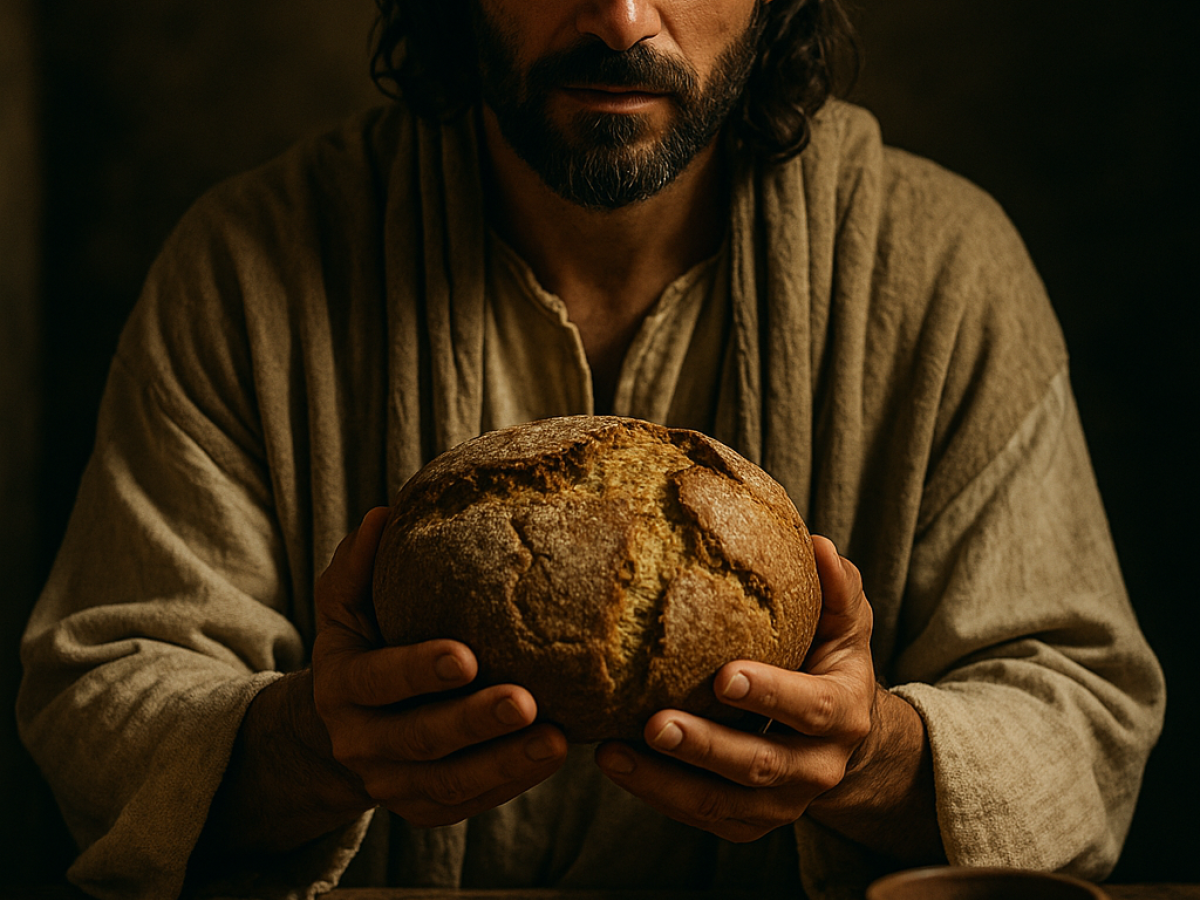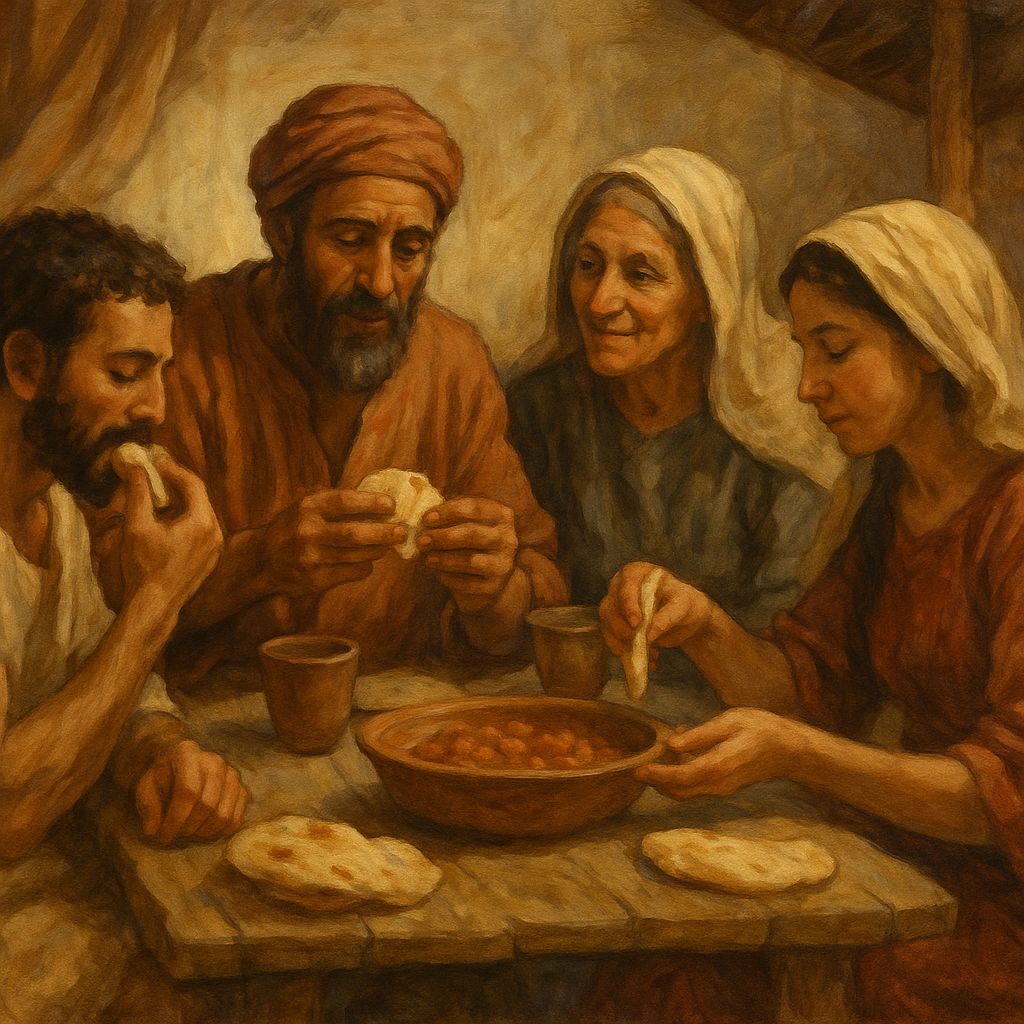
Covenant Meal Conquers Exile
Covenants are not written only on stone; they are eaten at the table. From Sinai’s feast to the Passover lamb, meals have bound God and His people in loyalty, blessing, and life. But Yeshua lifts the covenant meal to its highest fulfillment when He declares, “I am the bread of life.” In Him, exile is overturned, hunger is stilled, and the curse is broken. To come to Him is to enter by way of covenant meal, to sit at the table of blessing, and to taste the bread of heaven that endures forever.
Blessing, Curse, and Covenant Loyalty
In the Torah Israel has a stark choice: blessing or curse, life or death, covenant loyalty or exile. Moses’ words framed Israel’s destiny around covenant faithfulness. To obey God’s commands meant dwelling in the land in blessing; to forsake Him meant being driven out, exiled from His presence. Covenant was not an abstract arrangement but a lived reality—anchored in worship, in obedience, and most powerfully, in meals shared with God.
The Bread of Life as Covenant Revelation
It is this very framework that shapes Yeshua’s teaching in John 6:35–51. When He declares, “I am the bread of life,” He is not speaking of bread as nourishment per se. He is unveiling covenant. To “eat” is to ratify the covenant meal, to seal a relationship with God at His table. Whoever eats of Him enters into covenant life, a bond that carries the blessing of endless provision and eternal fellowship.
Coming to Yeshua: Entering Covenant and Ending Exile
The Hebrew word bo, “to come” or “to enter” captures this movement. To come to Yeshua is to step into covenant, to enter a reality where hunger and thirst are no more. Unlike the threat of exile in Deuteronomy, where covenant breakers were cast out of the land, Yeshua promises, “Whoever comes to Me I will never cast out.” The Greek word ekballo, “to drive out,” mirrors the Hebrew garash, the term used when God expelled nations from the land or exiled Israel for covenant unfaithfulness. To be driven out is to break covenant, to fall into chaos and separation. But Yeshua turns this on its head: in Him, there is no casting out—only welcome, belonging, and restoration.
Covenant Meals Throughout Scripture
This covenant meal pattern runs deep through Scripture. In Exodus 34:11, God declared, “Behold, I am driving out before you the Amorite, the Canaanite, the Hittite, the Perizzite, the Hivite, and the Jebusite.” Israel was warned not to make covenant with idols or to eat of pagan sacrifices, lest they bind themselves to corruption and judgment. Meals sealed covenants, for good or ill. To share at the wrong table was to step into curse. Yeshua reclaims this reality with divine authority.
Yeshua and the Wilderness of Exile
Just as He drives out (ekballo) demons in the New Testament, casting chaos from the land, so He makes space for His people to dwell in covenant blessing, free from the snares of false worship. The wilderness story reveals the depth of this mystery. Mark tells us that the Spirit “drove” (ekballo) Yeshua into the wilderness, thrusting Him into the place of exile and testing, where demons lurked and wild beasts roamed. This was the landscape of chaos, where Israel had stumbled again and again. But Yeshua remained faithful. He endured temptation, resisted the adversary, and emerged as the true Son who conquers exile. Because of His victory, those who eat of Him, the bread from heaven, are not abandoned to the wilderness of exile but raised up to eternal life.
Covenants are Sealed with a Meal
Here lies the covenant mystery unveiled: every covenant in Scripture is sealed with a meal. At Sinai, the elders ate and drank in God’s presence after the covenant was given. In the land, the Passover meal became the yearly sign of Israel’s loyalty. But now, in John 6, Yeshua reveals Himself as the covenant meal. “The bread that I will give for the life of the world is My flesh.” To eat His flesh and drink His blood is to seal the covenant meal with Him, to share in the very life of God.
The Bread from Heaven and the End of Exil
This is not an ordinary provision. The manna in the wilderness is a covenant meal that sustained Israel for a day, but those who ate still died. Yeshua is the bread from heaven, given not for a moment but for eternity. He rolls back the exile, restores us to the place of blessing, and invites us to Eden’s table once more. In Him, covenant loyalty is not a burden but a feast, not a threat of curse but the promise of endless life.
The Covenant Feast That Endures Forever
To eat of Him is to embrace the covenant meal of blessing, to share in the meal that binds heaven and earth together. He is the bread that satisfies not for a season but forever, the food that lifts us out of exile and sets us in the presence of God. In Yeshua, the covenant meal and the bread of life become one. Whoever comes to Him will never hunger, never thirst, and never be cast out—but will feast forever in the presence of the King.


Leave a Reply